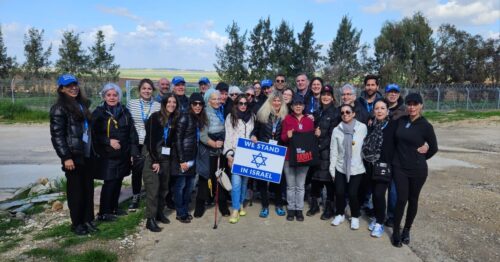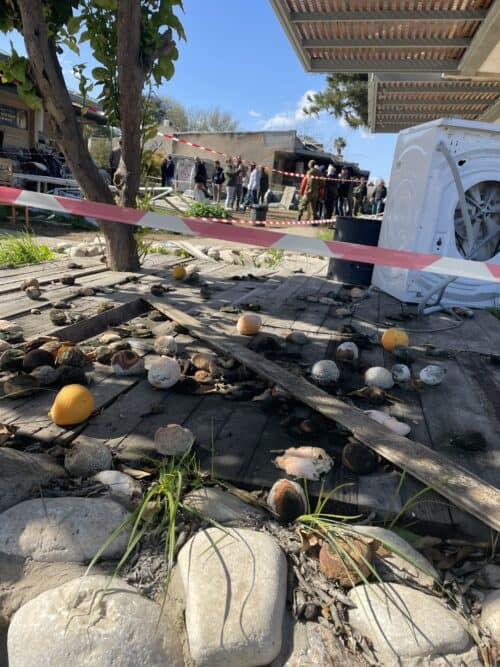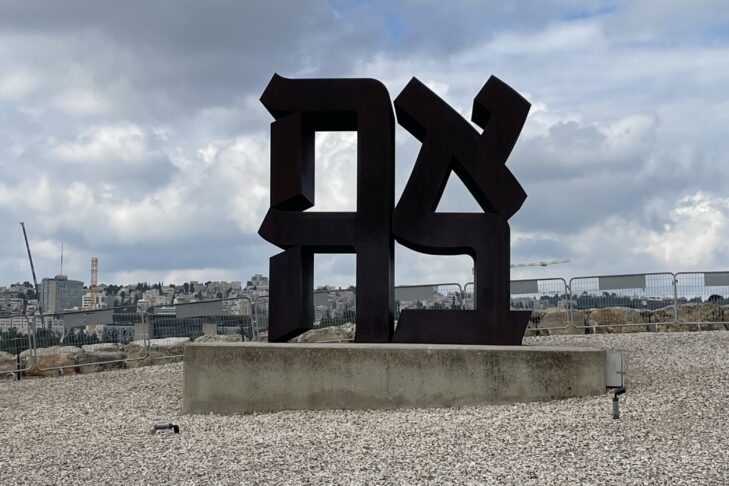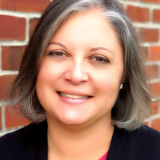I’m writing this reflection from the café at The Israel Museum in Jerusalem after spending the past three days leading CJP’s second solidarity mission to Israel. Waking up this morning after all that we’ve seen and heard over the past few days, I needed a place to rest my mind and my soul. So, I came here to the museum to find a moment to collect my thoughts.
After seeing so much loss, destruction, and trauma during our visit, spending the morning amidst thousands of years of Jewish history has reminded me of all the challenges the Jewish people have faced over time and of our ability to not only withstand them, but to continue to thrive.
Our solidarity missions have several purposes. We come to Israel to bear witness, to listen, to learn, to express our love and support, and to try to answer the critical question: “What more can we, as an American Jewish community, be doing?”

We bore witness as we saw with our own eyes the destruction in Kibbutz Kfar Aza. We saw houses burned and signs on the homes where civilians were ripped from their beds and taken hostage in Gaza. We heard from Ellay, who shared how she saved herself and her 1-year-old daughter when her home was set on fire by terrorists.
We listened to military and geopolitical experts share their views on why this happened and what threats still lay ahead for Israel. We listened to dozens of personal stories of heroism and horror, including from our own security guard, Ariel, who came to work during his week off from reserve duty. He has heroically been flying injured civilians and soldiers to safety in a helicopter for four months.
We learned about trauma rehabilitation and the thousands of volunteers and professionals who are creating new paths for healing in every sector of Israeli society.
We expressed our love and support to the residents of Kibbutz Re’im, who with help from CJP’s Israel Emergency Fund, are now living together in Tel Aviv in what they call a “vertical kibbutz.” Gone are their green fields and sprawling neighborhoods, but they remain together, committed to each other and their community. We achieved so many of our goals for this mission. And yet, the question about what more we can be doing as an American Jewish community was hard for people to answer.

Here are some of the things we heard from the Israelis we met in response to our question:
- Make sure we are not forgotten, and that the world knows what really happened here.
- Tell our stories; be our voice where we cannot reach.
- Write to the White House every day and keep fighting for the release of the hostages.
- Give us a hug when we need it—even from afar.
- Walk tall with Jewish pride, even in the face of antisemitism in the United States.
- Stand up for what you believe in, even if it costs you friends.
- Every story is different—be open to listening and hearing it all.
- Recognize that there is no going back to normal, there is only going forward.
- Do not ask us how we are—tell us you are with us, you love us, and that you care for us.
- Please come back again, and ask everyone else to come when they feel comfortable. Seeing you here in Israel helps us feel that we are not alone and that we are part of Am Yisrael, one Jewish people.
I know those of us on our mission will try hard to live up to this list. We will continue to listen, share, give, and volunteer. We will come back to Israel as soon as we can.
We will carry the words of Sharon Calderon—sister-in-law of Ofer Calderon, who was kidnapped from his home and still held hostage in Gaza—in our hearts forever. She said: “My husband returned to our kibbutz in the south to take some of our things. He asked me which clothes I wanted. I evacuated on Oct. 8 with nothing but the clothes I was wearing. I told him not to bring me anything. The clothes from Oct. 6 are for a different person. I will never be that person again.”
We, too, will never be the same as we were before this experience. And yet, I walked the art garden here at the museum this morning and came upon an iconic sculpture: Ahava (Love). Even in these dark days, love must win. We leave with our hearts full of love, for everyone who is impacted by this war, for everyone who is fighting for the Jewish future, for all those we have lost. Like the thousands of years of Jewish history in this museum remind me, we will prevail, we will heal, and we will build a future again.



